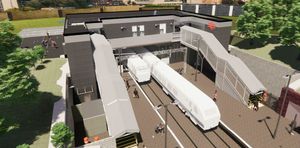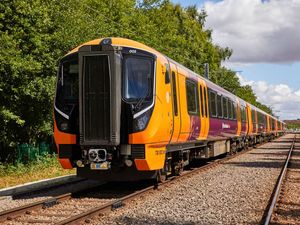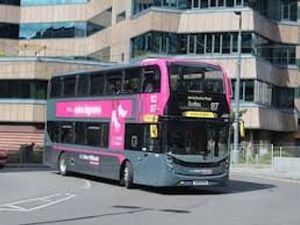Perry Barr station plan facing £9.5m shortfall
The redevelopment of Perry Barr railway station will cost nearly £10 million more than originally planned – raising concerns over the scheme.

And it is not yet clear where the missing cash will be coming from, with council leaders from across the West Midlands Combined Authority (WMCA) set to meet to find a solution.
Presented at today’s WMCA board meeting, leader of Birmingham council Ian Ward was eager to stress the importance of the scheme going ahead, with the station set to act as a conduit for visitors to the 2022 Commonwealth Games.
The original budget for the scheme was just over £21 million, though this has now risen to £30.98 million.
Original proposals for the station were roundly criticised by the public when first unveiled, with one local resident branding them as ‘like something my eight-year-old has done in Minecraft’.
This led to a redesign late last year, though this still received criticism from some sections of the public.
It is the most recent in a long line of WMCA transport projects that have gone over budget, with the redevelopment of both University and Coventry railway stations set to cost millions more than first budgeted.
And the leaders of both Walsall Council and Warwickshire both raised concerns over yet another project coming in above cost.
“Whenever we have a transport scheme, it’s overrun by a substantial amount of money,” Councillor Mike Bird said.
“We saw this at the University station – I think that was about £10 million. We were talking about Coventry on Monday – that was £10 million.
“And here we have anther £10 million, which seems to be a common figure, but this is 30 per cent more.
“And I have to say to myself ‘are we putting figures forward to enable us to be complacent in agreeing the scheme, and then trying to find the money afterwards?’
“It worries me greatly because there are many examples on all transport schemes – I’ve just mentioned three and I’m sure I could find more.”
“There is an issue, I think, particularly with railway schemes,” added Councillor Izzi Seccombe.
“It seems to be that the marketplace finds that this is the way to go about bidding, and it isn’t satisfactory when we are looking at funding that’s tight, and looking at projects that we are very keen are prioritised, and we expect to deliver. And then we find three quarters of the way down the line that we’re in this position.
“I’ve certainly found it with Network Rail in particular, but it is not down to them alone. We tried to address it at the time, but it is such a difficult thing to change the culture, and I think there’s a fundamental problem here.”





